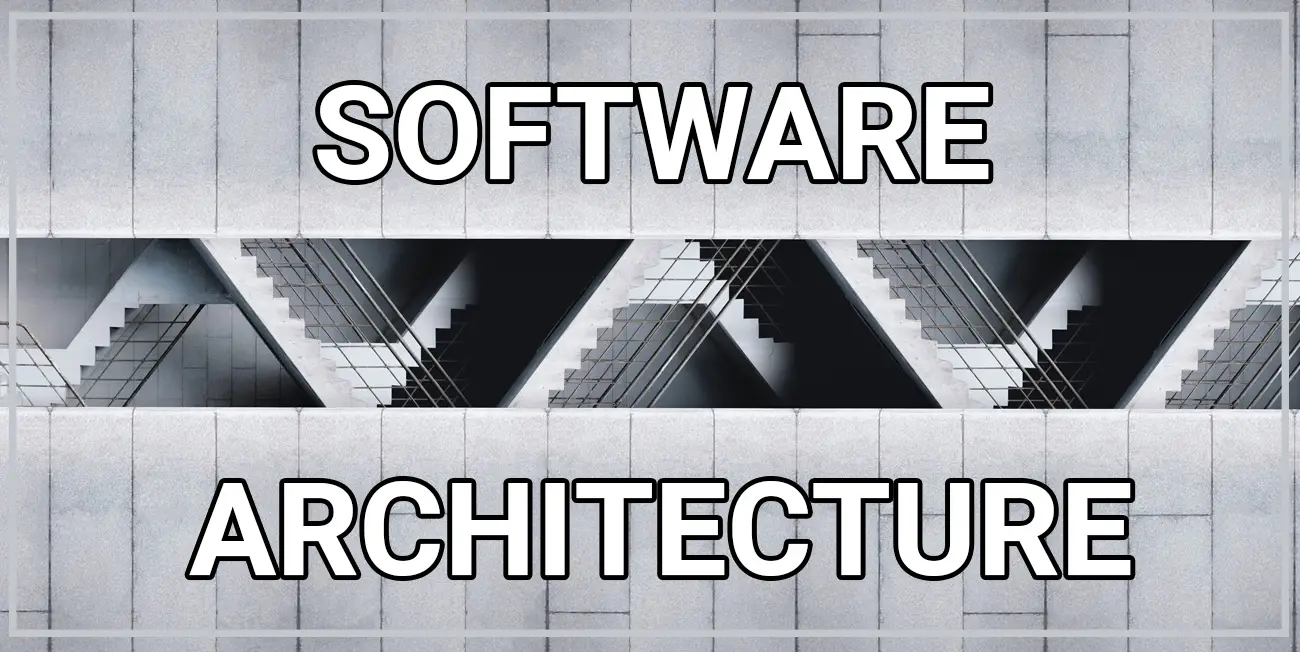The software development industry is not easy. It involves complex processes aimed at creating applications or personalized systems.
Therefore, it is worth ensuring that everything is written in the contract so that cooperation with the software vendors is transparent and trouble-free. In this article, we’ll take a closer look at such a contract, its types, and what to look for when signing it.
Let’s start from the beginning, i.e., what is a software development contract?
What is a software development contract?
A software development contract, or software development agreement, is a way to set expectations between a company or individual who wants software created (the client) and the company or individual who will create it (the vendor). This type of contract is very useful if it is created correctly because it guarantees security for both parties.
If such a contract is not signed, you even risk the collapse of your business. This is because the vendor can deliver a poor-quality product, charge more money than agreed, and the worst of them all – take advantage of your intellectual property.
Therefore, when signing a software development contract, you should be accompanied by a lawyer who will check that all the elements are included and that the contract is properly written.
There are many types of software development contracts, but three of them are the most important. Learn more about them below!
Types of software development contracts
Before any work on your product begins, you must first determine what type of software development contract you expect from the vendor. It all depends on your project’s scope, budget, and duration. There are three main types of contracts in the software development industry – time & material, fixed cost, and dedicated team. Let’s take a closer look at them.
Time & material

Time & material is the most common type of contract in the software development industry. In this type of agreement, you pay your vendor based on the number of hours they work on your project. This type of contract is best suited for projects with an undefined scope or those that are likely to change over time.
The biggest advantage of a time & material contract is that it gives you more flexibility. If your project scope changes, you can simply adjust the number of hours your vendor works. This type of contract is also less risky for vendors, as they know they will be paid for their work regardless of whether the project is successful or not.
However, a time and materials contract can be more expensive in the long run, as you pay for each hour of work regardless of whether it is productive. This type of contract can also lead to scope creep, as vendors may be tempted to work on additional tasks that are not essential to the project’s success.
Fixed cost

A fixed-price contract is exactly what it sounds like – you agree to pay a set price for a specific deliverable. This type of contract best suits projects with a well-defined scope and timeline.
The biggest advantage of a fixed-price contract is that it gives you more certainty over your costs. You know exactly how much you will need to pay for the project, no matter how long it takes to complete. However, this type of contract is riskier for vendors, as they are only paid if the project is completed successfully.
The main downside of a fixed-price contract is that it can be difficult to change the project’s scope once it has started. This can lead to frustration on both sides if the project hits a snag and needs to be revised.
Dedicated team

The dedicated team is a solution for long-term cooperation. With this type of contract, you get all the employees you need, such as software developer, project manager, and graphic designer outsourced from the software development company. The team works exclusively on your project during the entire period of cooperation.
The main advantage of this type of contract is that you have full control over the team and can manage them however you see fit. This type of contract is also more flexible, as you can easily add or remove team members as needed. The dedicated team model is ideal for companies that need to build a complex product or service and want to have full control over the process.
The main downside of a dedicated team is that it can be more expensive than other types of contracts, as you are responsible for the salaries of all the employees on the team. Additionally, it can take longer to get started, as the vendor needs to assemble the right team for your project.
Interestingly, with a dedicated team model, you can agree on a fixed price for a given outsourced employee for, let’s say, a month or pay him for every hour he works. So with a dedicated team, you can still choose from fixed budget contract and time & material contracts.
Most important elements of the software development agreement
Once you have chosen an appropriate type of contract for your project, you will need to ensure that all the elements mentioned below are addressed. Of course, we only mentioned a couple of the most important elements, as your lawyer should be the one to give you more detailed advice.
Intellectual property rights

This is the most important thing you need to consider when outsourcing your software development. You must ensure that your company will own all rights to the source code, including ownership of the copyright and any patents or trademarks related to the final product.
It is very important to address software’s intellectual property in your contract because once the cooperation ends, you must be sure that everything that the vendor created is your property and that the vendor doesn’t reuse any component of your product. In most cases, you’ll want to own the code so that you can use it however you please after the project is complete. Additionaly you must know whether your product will have any third party materials.
Most often, this is sorted out at the very beginning of cooperation by signing a standard NDA agreement. developer written notice
Project scope

Project scope is another important thing you should think about when outsourcing your software development.
Ensure the contract clearly defines the project’s goals, timeline, and deliverables. This will help avoid situations where the vendor over-delivers or under-delivers and will also give you a clear basis for measuring whether the project was successful.
Additionally, building some flexibility into the project scope is important in case of anything changes during the development process. Changes are inevitable in any software development project, but if they’re not anticipated from the start, they can cause serious problems down the road.
To avoid this, ensure that your contract includes provisions for making changes to the scope of work and that these changes are made in writing and signed off by both parties. This way, everyone is on the same page regarding what needs to be done, and there’s a clear record of any changes that are made.
Time and cost

This is the most straightforward element that should be incorporated into a software development agreements. Depending on which type of contract you have chosen, you will have to set a fixed price that both you and the vendor will agree to or the cost per hour of work of the developers/team.
Additionally, you will also need to establish a project timeline, that is, what elements are to be delivered, when they are to be delivered, and what stage the project will have. Remember to include room for mistakes and deadline shifts. After all, none of us are robots
Payment terms

You don’t want to be surprised with a large invoice at the end of the project, so it is important to establish payment terms from the get-go. Payment terms can either be based on milestones, i.e., when certain parts of the project are completed, or time-based, where you pay a certain amount every month until the project is completed.
Milestones can be great motivators for your vendor as they know that they will only get paid when they reach those milestones. They also provide good opportunities for quality control on your part as you can check that everything works as agreed before releasing more payments.
Acceptance testing

A vendor can develop your product, but it is of no use to you if it doesn’t meet your needs or requirements. That is why you should add the acceptance testing element to your contract. Acceptance testing is a procedure where once the product is ready to go live, you can enter it and check whether it meets your assumptions. Adding it to your contract can help you avoid publishing a sense less product to the market. With acceptance testing, you should state how long it will take you and how will the procedure look if you don’t approve it. For example, you will inform the vendor by developer written notice.
Warranty

A warranty guarantees that the product will work as it should for a certain period. This is important to have in your contract if something goes wrong with the product after it has been published. With a warranty, you can get the vendor to fix the problem at no extra cost.
Services to be delivered

The software development contract should clearly state what software development services you expect to be delivered by the vendor. This could include things such as:
• Designing and developing the software
• Testing the software
• Publishing the software
• Providing user support
- Maintenance services
It is important to be clear about what you expect from the vendor so that there are no surprises later on. Otherwise, you may end up paying for services that you don’t need or that are not up to your standards. The software development contract should also state which technologies will be used for development, what project management style will be used (scrum/agile), and how many people will be involved in the project.
Changes

Both parties could make changes – the client and the vendor. An overall software development project is a big undertaking; many aspects could change during the development process. That is why it is always worth stating in the contract how such changes would be billed – hourly or as a lump sum. It is also important to agree on what happens if the project needs to be put on hold or canceled completely. This should also be stipulated in the contract so that both parties are clear about their obligations in such an event.
Confidentiality

In order to protect both the client and the vendor, it is important to include a confidentiality clause in the contract. This clause would state that all information shared between the parties during the project – including code, designs, and business processes – is to be kept confidential and not shared with any third party. Of course, such a confidential agreement should be maintained even after the end of cooperation.
Success metrics

Formulation of mutually agreed metrics is crucial to contract success. In simple terms, these are the conditions that will be used to determine whether the project was completed successfully or not. These may include such factors as the functionality of the delivered software, compliance with the schedule, and user satisfaction levels.
It is important to remember that these metrics should be realistic and achievable; otherwise, they will do nothing but create conflict between the parties.
Contract for software development – conclusion
Having a contract when embarking on a software development project is always a good idea. This document will protect the interests of both the client and the vendor and help avoid any misunderstandings during the course of the project.
Remember that the best option when signing the software development contract is to have a lawyer on your side. And if you have to write a contract yourself, you can find hundreds of software development contract templates online. We hope our article helped you grasp the whole idea of software development contracts, why they are so important, and what to watch out for.



